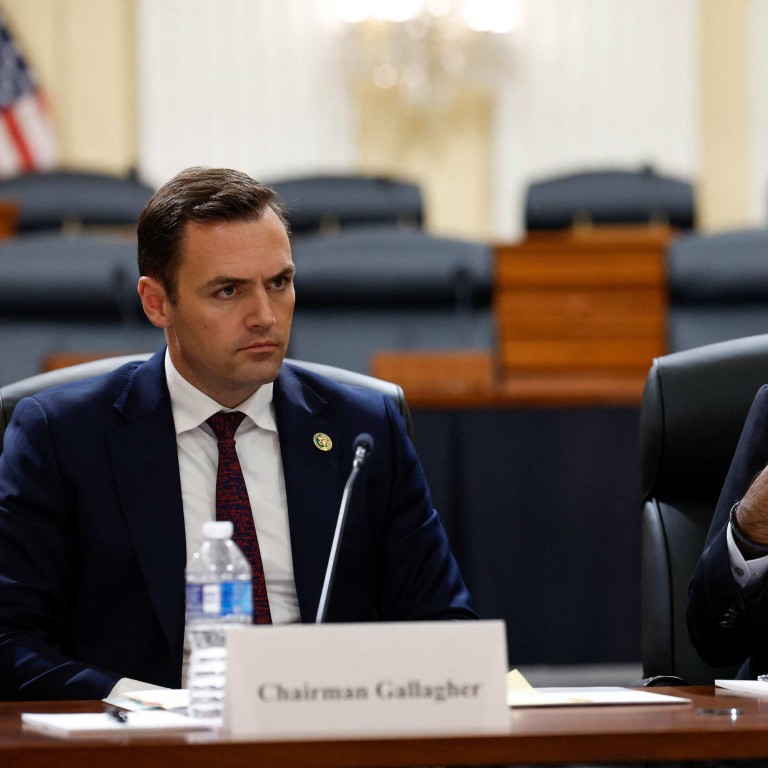
Move China to ‘new tariff column’ and ease entry for allies’ hi-tech workers, US House panel urges
- Sweeping bipartisan report comprises almost 150 recommendations reflecting Washington’s efforts to reset terms of economic relationship with Beijing
- ‘Balanced approach’ sought of protecting US economy and national security while collaborating better with key partners, says panel chair
The US House select committee on China released its first set of economic policy recommendations on Tuesday, urging China be moved to a “new tariff column” and that hi-tech workers from allied countries gain easier entry to the US.
The panel, whose formal name is the House Select Committee on the Strategic Competition between the United States and the Chinese Communist Party, was formed in January and has no authority to draft or amend laws.
Instead, it is tasked with making recommendations to permanent legislative committees. Its members – 13 Republicans and 11 Democrats – sit on various House committees with jurisdiction over the recommendations, including financial services.
Tuesday’s report grew out of multiple hearings, roundtables and field visits held in the past year.
The removal would undermine Beijing’s most-favoured nation status, which allows importers to pay regular duties on Chinese goods.
Keep China influence probes ‘free from bias’: leading House Democrats
In response to the report, Liu Pengyu, spokesman for the Chinese embassy in Washington, said, “[The] China-US economic relationship is mutually beneficial and win-win in nature.”
However, recognising the difficulty of unwinding from China, it suggested enacting legal safeguards to help state and local governments keen on divesting from the country.
In addition, it recommended full funding of “rip-and-replace” efforts that aimed to remove Chinese telecoms companies like Huawei from US networks.
Properly vetted workers from the Five Eyes working on joint defence projects should be exempt from certain US technology-sharing restrictions, the committee added.
Consensus no more? Democrats start to split from Republicans on China policy
“We can only outcompete the CCP by being the best version of ourselves internally and externally,” said Raja Krishnamoorthi, the committee’s top Democrat. “We should up our game, including by attracting the best talent in the world.”
Notably, the panel recommended the State Department negotiate the establishment of a new “plurilateral” export-control regime similar to the Coordinating Committee for Multilateral Export Controls created during the Cold War.
It also suggested reauthorising the Generalised System of Preferences, an economic development programme which waived US tariffs on nearly 5,000 products from about 120 countries. Businesses have argued that its absence makes it more difficult to move supply chains away from China.
Senator peppers US State Department nominee Kurt Campbell with questions on China
Trade and industrial policy are contentious points for Republicans and Democrats, and even as lawmakers voted to adopt the report, some voiced opposition to what they called its strong protectionist tendencies.
The committee was more united in strengthening transparency and controls for cross-border investments and influence. It recommended directing the US Treasury to provide more frequent reports on American portfolio holdings, disaggregated by sector and nationality.
It also called for “retroactive” foreign-agent registration, requiring those who have previously acted on behalf of foreign principals to notify the US government, even if their relationship has been terminated.
The panel further recommended reforms to the Committee on Foreign Investment in the United States (CFIUS), arguing that the inter-agency entity lacked the authorities necessary to properly evaluate inbound investment.

